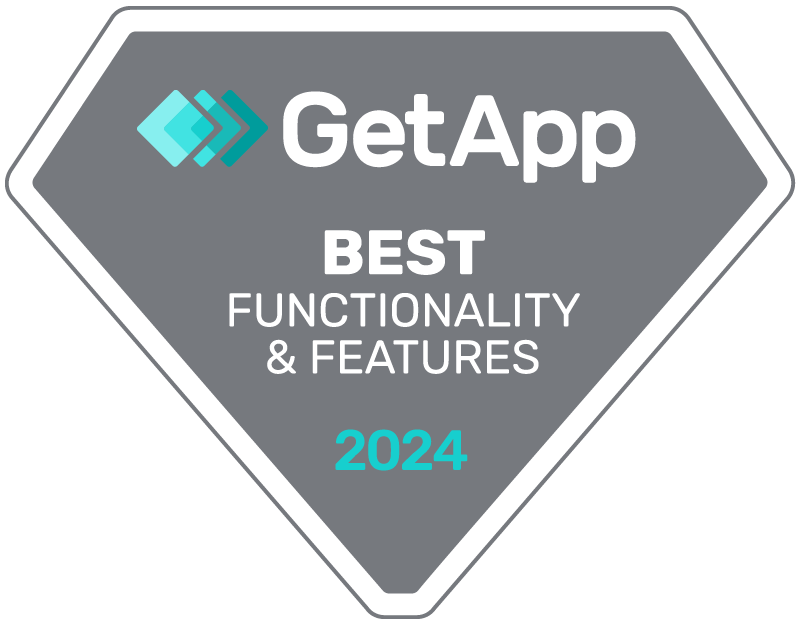Why Employee Engagement is Fundamentally Changing

The increasingly complex problem sets and the dependency of solutions on relationships between people have given rise to a new era of business technology – the Internet of People. This impacts employee engagement too. Employee engagement has traditionally been operationalized as annual employee surveys with rigid follow-up cycles that both managers and employees find frustrating and see very little value in. The Internet of People, built around soft data, will change this. Employee engagement is transforming into an integrated measure of how businesses operate, offering human resources leaders a refreshingly new opportunity to secure the delivery of critical outcomes in close collaboration with business leaders.
The Insufficiencies of hard data
For executives, the Internet of Things has proliferated the collection and analysis of hard data to enable better business decisions and improve operational efficiency. Hard data (referring to data generated from applications and devices such as phones and computers) can be measured, traced, and validated objectively. However, while hard data is successful in measuring the statistical probability of a situation occurring, it is insufficient for fully understanding the context of that situation and why it is occurring in the first place. Hard data does not give the complete picture.
For instance, employee productivity is shown to drop when the majority of vacation time is not taken every year. Yet, this is not necessarily always the case. Other factors may also influence productivity; some of which are not necessarily possible to capture objectively. Studies investigating the link between people data and business outcomes (typically referred to as people analytics) often deal with data collected about people – what people do – rather than from people – why they do it. Even in cases where data is collected from people, the connection is usually established by applying an average engagement score from an annual employee engagement survey that represents a standardized set of questions with little or no business relevance.

Discover what truly motivates your employees so you can skyrocket your productivity and profitability.
Learn moreThe importance of soft data
Opposed to hard data, soft data represents human intelligence. It represents opinions, suggestions, interpretations, contradictions, and uncertainties. Although soft data is definitely more challenging to quantify and analyze, especially when collected in large amounts, soft data is critical in providing context, meaning, and business foresight to hard data. The Internet of People emanates from the importance of soft data. The increasingly complex problem sets and the dependency of solutions on relationships between people, often across teams and functions, create substantial networks of knowledge and experience. Knowledge and experience that, although critical to determining whether an organization is consistently executing according to strategy and avoiding costly deviations, often do not get executive attention. The Internet of People reinforces that employees are closest to how a business operates.
Although the collection and use of hard data in business has never been more extensive than today, business leaders are still not confident in the decisions they make. According to KPMG 2016 Global CEO Outlook study, nearly nine out of ten respondents are concerned about the data that they base their decisions on. In a similar study published by IBM, eight out of ten respondents still utilize conventional techniques (such as brainstorming) to predict the future. Indeed, in the many conversations I have with business leaders about the challenges they are facing (such as an abrupt loss of market share, a crucial project that is overdue, or high turnover of critical talent), it is staggering how often they make the point that, in hindsight, there were probably employees in their businesses who would have been able to identify early warning signs before problems actually occurred. But they never asked. And the employees kept silent.
Rethinking employee engagement
Employee engagement is probably one of the most used, or misused, soft data concepts in business. Nevertheless, business leaders believe in the importance of engagement, and the link between employee engagement and financial performance has been proven again and again. However, until lately, engagement has been conceptualized as an isolated emotional state of mind, primarily taking the operational form of annual employee surveys and rigid follow-up cycles that both managers and employees find frustrating and see little value in. The Internet of People will change this antiquated notion for a number of reasons:
- First, employee engagement is not a static state of mind; engagement is dynamic, shifting from day to day, hour to hour, and minute to minute.1
- Second, engagement is a combined set of emotions and behaviors; the willingness of an employee to share business-critical insight and suggestions for improvement is one of the key behavioral components of engagement.2
- Third, employee engagement in organizations has to be aligned to strategic goals and objectives; otherwise, it is not really engagement but rather wasted chaotic energy.3
As Macey and his colleagues state, “a fundamental aspect of … behavioral engagement is that it is strategically focused and is bounded by purpose and organizational relevance.”4
At Argyle Executive’s 2017 Human Capital Forum on March 22 in San Francisco, California, Questback’s President Carol Lee Andersen will discuss how five best practices can transform engagement. In a session entitled, “Secure the Survival of HR: Transforming People Processes into Strategic Human Capital Management,” she argues that hard data is not enough to create a complete view of what is really going on in an organization. “Although bombarded with hard data, CEOs are concerned about the data on which they base their decisions. Soft data – human intelligence or, simply, views collected directly from people – can help solve this challenge as it gives hard data meaning, context, and business foresight, ultimately enabling CEOs to make more substantiated predictions about the future,” she says in a recent press release.
About the Author

Alexander Stephanou | Chief Organizational Psychologist at Questback
An organizational psychologist specialized in the link between engagement and business performance, Alexander has extensive experience in industry and academia, as a customer and now as a solution provider, which makes him a sought-after, trusted adviser for companies that look for innovative ways of getting ahead in an increasingly digitalized world of business. Alexander has various contributions to the human resources and human capital management arenas including Engagement in Organizations: An Empirical Study of How Engagement as a Psychological Phenomenon is Understood in an Organizational Context.
References
1Sonnentag, S., Dormann, C. & Demerouti, E. (2010). Not all days are created equal: The concept of state work engagement. In: Bakker, A. B. & Leiter, M. P. (red.). Work Engagement: A Handbook of Essential Theory and Research. New York: Psychology Press, s. 25-38
2Schneider, B., Macey, W. H., Barbera, K. M. & Young, S. A. (2010). The role of employee trust in understanding employee engagement. In: Albrecht, S. L. (red.). Handbook of Employee Engagement: Perspectives, Issues, Research and Practice. Cheltenham: Edward Elgar, s. 159-173
3Macey, W. H., Schneider, B., Barbera, K. M. & Young, S. A. (2009). Employee Engagement: Tools for Analysis, Practice, and Competitive Advantage. West Sussex: Wiley-Blackwell
4Macey, W. H. & Schneider, B. (2008a). The Meaning of Employee Engagement. Industrial and Organizational Psychology, 1 (1), s. 3-30









